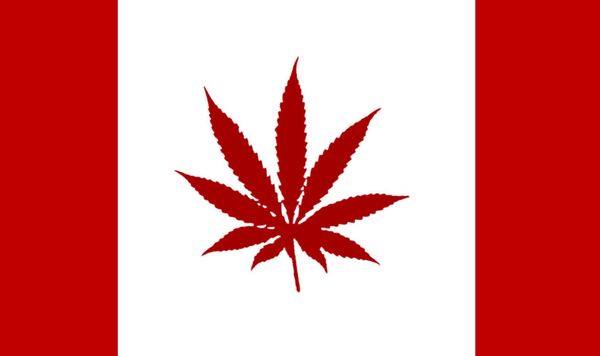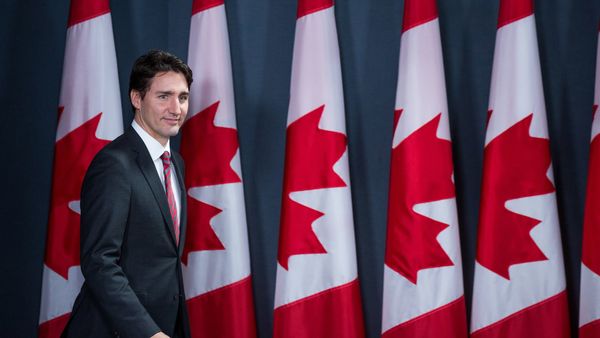- It's now official. Canada is on the way to become the first member of the G7 that will legalise the consumption of both medicinal and recreational marijuana. The new regulation will not come into force for another year, in spring 2017, but liberal Justin Trudeau's Government has already announced, through its Health Minister, that they are working on making the legalisation of cannabis a reality.

That Justin Trudeau is an atypical leader isn't anything new. His men’s underwear model looks, his past as a boxer and his attitude are a far cry from the typical colourless politician that we are used to. What stands out, in an era of political marketing and posturing, is that Trudeau’s differences with old politics go beyond a mere façade or anecdotal measures, addressing issues at their root. Trudeau has inherited from his father, former Canadian Prime Minister Pierre Trudeau, his reformist attitude and has taken it upon himself to make Canada the country he would like to live in. For real and with all the consequences. Without any demagoguery nor posturing, the Canadian prime minister, who took office last October, is proving what doing new politics is really about. And what’s more, judging by his own and his Government's high popularity ratings, it seems that Canadians would also like to live in that country.
Therefore, it should be no surprise to anyone that last 20 April, which happens to be an important date for the world of cannabis, the Canadian health minister, Jane Philpott, announced that her Government is already working so that in spring 2017 the recreational and therapeutic consumption of marijuana can be legal. The setting for the announcement was as significant as the date, as Philpott was in New York attending the UN General Assembly Special Session (UNGASS) on drugs.
The session had been preceded by two carried out in 1998 and in 2009, respectively, and was held at the request of several Latin American states led by Colombia and Mexico, with the aim of reviewing international policy on drugs and of making it more realistic. Four years ago this group of countries, who have been suffering the terrible consequences of drug trafficking and the war on drugs, already stated the need to replace the repressive approach in force since the year 1971, imposed by the Richard Nixon Administration, with another more preventive approach.
In the end the Assembly did not achieve its goal of an in-depth review of international policy on drugs and the countries present simply signed a minimum requirements document approved a month earlier in Vienna. However, it did serve its purpose as a setting so that the leaders of some countries could call for innovative measures to break the status quo in force up until now. Among them, Mexico, whose president, Enrique Peña Nieto, took the opportunity of his presence in New York to announce that his country will legalise the therapeutic use of marijuana and that, in addition, it will increase the quantity that is legally permitted for private consumption. And, of course, it was the place chosen by Canada to announce the start of its own path towards the full legalisation of cannabis consumption.

Medicinal cannabis programme
During his election campaign, Justin Trudeau made it clear that the legalisation of marijuana was to be one of the measures he would take in the event of winning the elections, so the announcement by his minister is just the confirmation that the electoral promises were serious. For now, the measures and the ways in which this legalisation will take shape are still imprecise, but Philpott made it clear during her announcement that, of course, marijuana will be kept completely out of the reach of minors and that one of the aims is that criminal organisations cannot profit from the sale of cannabis. Thanks to the majority that the Liberal Party has in the Canadian Parliament, it looks probable that the new legislation will be passed without any problems.
The regulation of the consumption of marijuana for therapeutic purposes is not new in Canada. Quite the contrary. Although there have been substantial changes, it was more than 15 years ago, in 2001, when the country was the first in the world to establish a Government-led programme to produce and supply marijuana to chronically ill or terminally ill patients who applied to the Health ministry for a permit. If in 2002 there were 500 people registered with the programme, by 2012 the number had grown to 26,000.
In late 2013, the Conservative government presided by Stephen Harper announced an important change to the rules that regulated access to cannabis for medicinal purposes to avoid "the abuses" detected. On the one hand, the State ceased to produce marijuana and opened up the market to private businesses, though it established strict safety requirements that included the prohibition of growing private crops at home of cannabis. On the other, the need to request authorisation from the Health ministry was eliminated and it was now left in the hands of doctors to sign a document similar to a prescription with which patients could purchase the prescribed amount, always from an authorised supplier.
The new legislation came into force in March 2014, and although it cleared the way for private companies eager to get a foothold in the succulent cannabis sector, it was a tough blow for users who grew their own marijuana. A group of home growers took the case to the courts, claiming that the new law was a violation of their constitutional rights. Last February the Federal Court ruled in their favour, forcing the government to change the current law so that private growing could be legal again.
Reduction of criminality
In this scenario, it is understandable that Canadians saw the legalisation of marijuana as something normal and not as a problem. In fact, almost 70% of the population is in favour of its decriminalisation. To give an example: When he was in the opposition, Trudeau admitted that he had consumed marijuana on some occasions, a fact that the Conservative Party tried to use against him without this changing in the slightest his popularity ratings.
Canadians live with the regulation of marijuana with normality and they do not seem to relate its use with marginality. Rather the contrary, the perception is that the legalisation of marijuana will bring a reduction of the problems associated with the black market, as shown by the declarations by the former Toronto Police Chief Bill Blair, a member of Parliament, who has spoken out in favour of starting to treat marijuana like alcohol or other substances, so that “we control who it is sold to, when it’s sold, and how it is used. And organized crime doesn’t have the opportunity to profit from it.”
Although there will be people who see the spring of 2017 as a faraway date, paradoxically, the fact that the Canadian Government has not hurried from one day to another the legalisation of recreational marijuana consumption is proof that they are serious about it. Comprehensively regulating the cannabis market in one of the world’s richest countries has a social, economic and even philosophical impact -at a global level- that requires reflection and in-depth prior work so that it works correctly. From a domestic point of view, Canada will see the emergence of a new industry which up until now has mostly functioned illegally and which is related to a substance that, like alcohol and tobacco, is not innocuous and must be consumed with responsibility. Therefore, there must be careful research into what model will establish the measures that will be taken for the protection of minors and for the safety of consumers, as well as the taxation and regulation of private growing, among others.
If that were not enough, the fact that a country as important as Canada will legalise marijuana sends a powerful message to the international community, marked by the prohibitionist policies of most of its peers. Among other things, Trudeau’s Government faces the challenge of conciliating the new legislation with the UN's Single Convention on Narcotic Drugs, in force since 1961. This document, promoted by the USA, sought to establish a unified and universal oversight system for drugs with the aim of eliminating the traditional consumption of opium within a period of 15 years and that of cocaine and cannabis within a period of 25 years. Although it seems that within the UN a change of position is gradually taking place with respect to how to tackle the issue of drugs, there is still, as was patent at the convention of last 20 April, a long way to go.
In any event, Justin Trudeau and his Government are laying the foundations of what could be the immediate future of the cannabis industry, marked by legality and responsible consumption, in an atmosphere of normality. From an aesthetic point of view, in addition, a powerful message is sent out that further explores the same idea: yes, the legality of cannabis can be defended with a suit and tie, without being a regular consumer, rubbing shoulders with the world's most powerful leaders and, in addition, giving lessons on quantum computing for dummies. Is this new politics or not?



Comments from our readers
There are no comments yet. Would you like to be the first?
Leave a comment!Did you like this post?
Your opinion about our seeds is very important to us and can help other users a lot (your email address won't be made public).